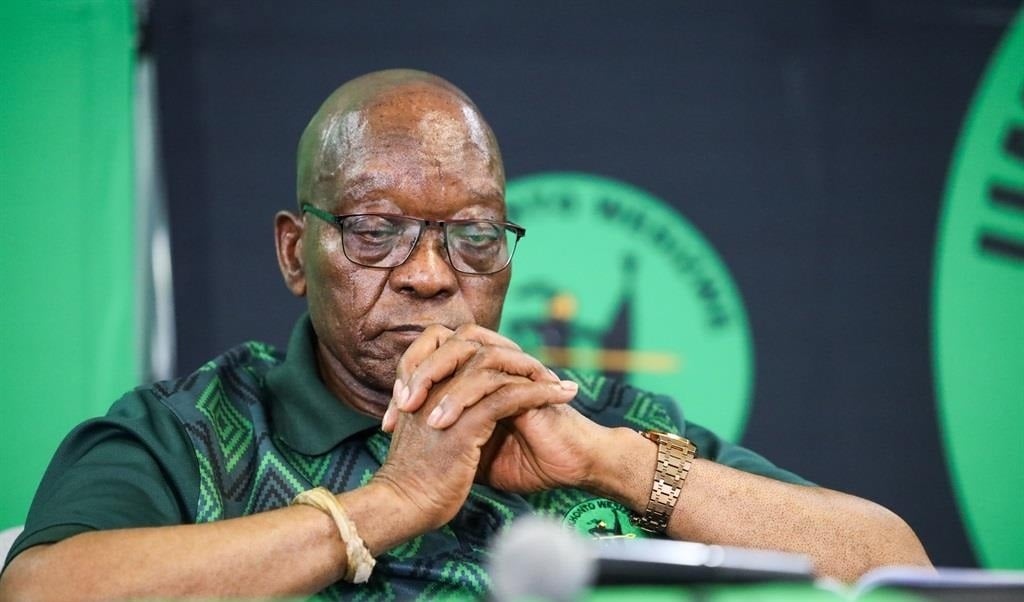News
Zuma and MK Party head to court to stop Madlanga Commission

A legal showdown in Pretoria
Former president Jacob Zuma and his political home, the uMkhonto weSizwe Party, are back in the courts. This time, their fight is aimed squarely at the newly formed Madlanga Commission, a judicial inquiry established by President Cyril Ramaphosa in July to probe allegations of organised crime infiltrating the country’s institutions.
On Thursday, the Gauteng High Court in Pretoria will hear their urgent application to interdict the commission’s work. Zuma and the MK Party say they are not opposed to commissions of inquiry in principle. Their objection, they stress, lies with this commission’s structure and scope.
Judiciary under investigation
The commission, led by Constitutional Court Justice Mbuyiseli Madlanga, has been tasked with investigating explosive claims that criminal syndicates have seeped into law enforcement, intelligence, and even the judiciary. These claims were first made public by KwaZulu-Natal police commissioner Nhlanhla Mkhwanazi, who accused high-profile figures across politics, policing, and the courts of working hand-in-hand with drug cartels.
For Zuma and the MK Party, that mandate is a red flag. They argue that appointing a sitting judge to probe the judiciary creates a conflict of interest. “The judiciary cannot be both an accused institution and the investigating body via one of its own members,” they said in their filing. They claim this undermines the constitutional principle that no one can be a judge in their own cause.
Clashes over constitutional powers
At the heart of their argument is the claim that the commission intrudes on the responsibilities of the Judicial Service Commission and the Magistrates Commission. These two statutory bodies exist precisely to handle allegations of misconduct against judges and magistrates. According to Zuma and the MKP, the Madlanga Commission risks sidelining that framework and handing judicial oversight to the executive.
Their legal papers also attack Ramaphosa’s recent decision to place Police Minister Senzo Mchunu on special leave, temporarily replacing him with Professor Firoz Cachalia. The party and its leader say this is unconstitutional, irrational, and a violation of the president’s oath of office.
Costly and contested
Another strand of their challenge focuses on money. The Madlanga Commission has been allocated a R147.9 million budget over six months. Zuma and his party have branded it an “extremely expensive” exercise that will drain taxpayers without guaranteeing accountability or solutions. They also argue that keeping Mchunu on leave adds to public costs.
Ramaphosa stands firm
President Ramaphosa has defended his decision. He maintains that the commission does not replace or override the JSC. Instead, he says, it runs alongside existing oversight bodies, investigating systemic risks rather than individual misconduct. If evidence emerges pointing to specific judges, he insists, those matters will still be referred to the JSC or the Magistrates Commission.
Political resistance grows
The courtroom is not the only space where this battle is being fought. In the days leading up to the commission’s expected start, MK Party supporters staged protests to show their opposition. For Zuma and his movement, the fight is not only legal but also political, part of their broader critique of how power is exercised in South Africa today.
As the High Court weighs the urgent application, the case underscores deeper tensions: who gets to hold the judiciary accountable, how far executive powers should stretch, and whether commissions of inquiry are a tool for transparency or a threat to independence.
Also read: Mitchells Plain drive-by shooting leaves three dead as Cape Town battles relentless gang violence
Follow Joburg ETC on Facebook, Twitter, TikT
For more News in Johannesburg, visit joburgetc.com
Source: IOL
Featured Image: Central News















